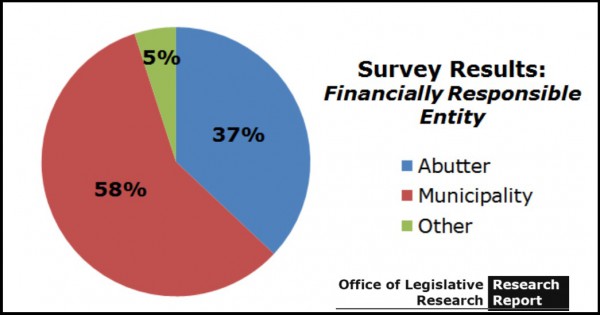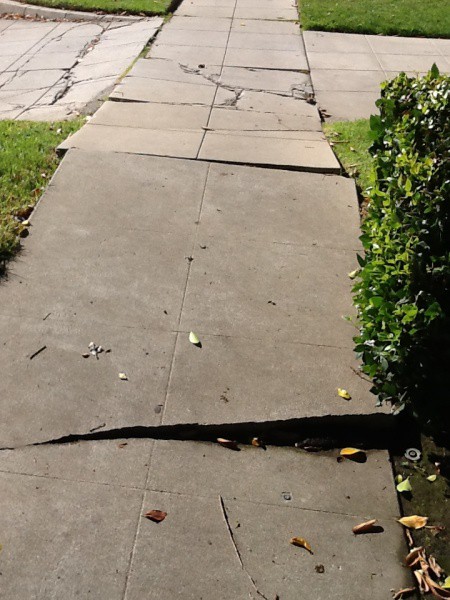Policies Vary on Who Pays for Public Sidewalk Repairs; 38 Towns Report No Sidewalks At All
/A survey of Connecticut’s 169 municipalities identified the party that is financially responsible for repairing public sidewalks, and discovered that policies vary from town to town - and there are 38 municipalities that indicate they don’t have any sidewalks.
As for financial responsibility for repairs among those that do, it varies, according to a report by the Office of Legislative Research (OLR). The survey found that 127 municipalities had sidewalk repair policies that were spelled out in ordinances or based on informal practices. Four municipalities, Burlington, Ledyard, Sterling, and Woodbridge, reported that they do not have a sidewalk repair policy.
Of the 127 municipalities with sidewalk repair policies, 74 (58%) are responsible for repairing sidewalks and 47 (37%) require abutting property owners to pay for sidewalk repairs, subject to certain exceptions, OLR reported. For example, many municipalities that require abutters to pay for sidewalk repairs exempt them from doing so if the damage was caused by the roots of municipally owned trees. Other municipalities exempt abutters in downtown areas or those whose sidewalks are used by children walking to school.

In other municipalities, abutters may be relieved of responsibility for sidewalks within the downtown area or used by children walking to school. And in municipalities where abutters are generally not responsible for sidewalk repairs, they may be responsible if they cause the damage, for example when doing construction work on their property, the OLR report explained.
Communities indicating they do not have sidewalks include Andover, Barkhamsted, Bethany, Bethlehem, Bolton, Bozrah, Bridgewater, Brookfield, Brooklyn, Canterbury, Chaplin, Colebrook, Columbia, Cornwall, Durham, Easton, Franklin, Goshen, Hampton, Hartland, Killingworth, Lebanon, Lyme, Middlefield and Morris. Additionally, the towns of New Fairfield, North Stonington, Orange, Oxford, Pomfret, Preston, Prospect, Roxbury, Scotland, Union, Warren, Weston and Wolcott report no sidewalks in town.
Five municipalities have policies shifting the burden depending on whether the sidewalk is (1) state- or municipally-owned or (2) within the state or municipal right of way. One municipality reported that repairs are the state’s responsibility. In many municipalities, sidewalk repair policies are informal and based on past practice, the survey found.
The OLR Report, 2015-R-0213, was issued in December 2015 and highlighted by OLR last month. Data was compiled through an email survey of municipal planning offices and chief elected officials. According to the report, nine municipalities shift the burden from abutters to themselves when damage is caused by tree roots, a snow plow, or other activities conducted by the municipality. And 14 municipalities make abutters responsible for repair costs if their actions gave rise to the needed repairs. The sidewalk version of “you break it, you pay for it.”
































